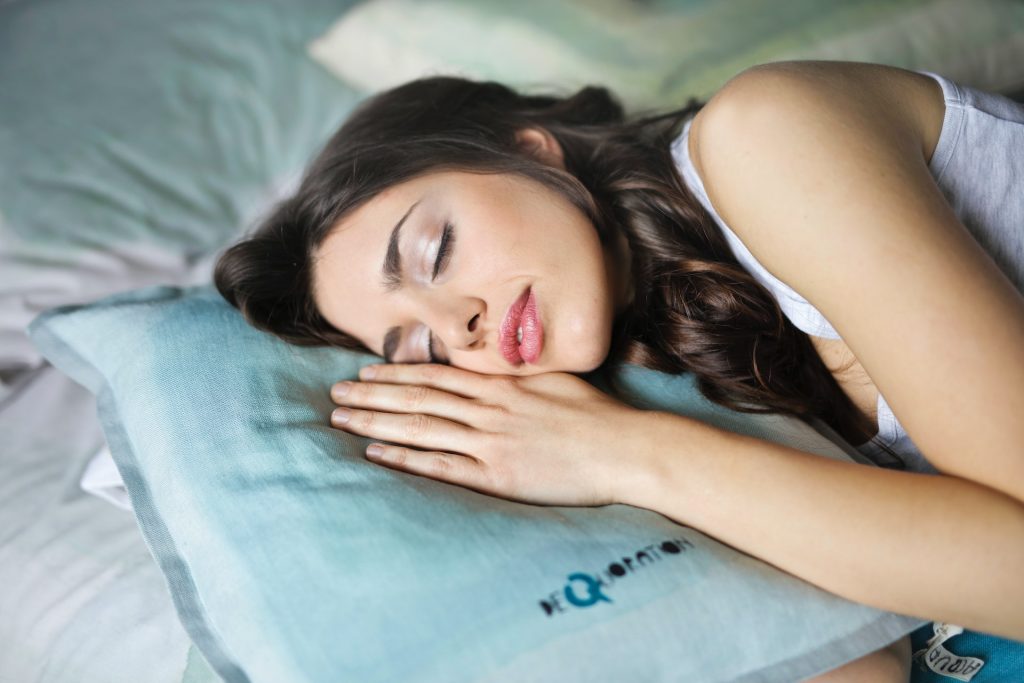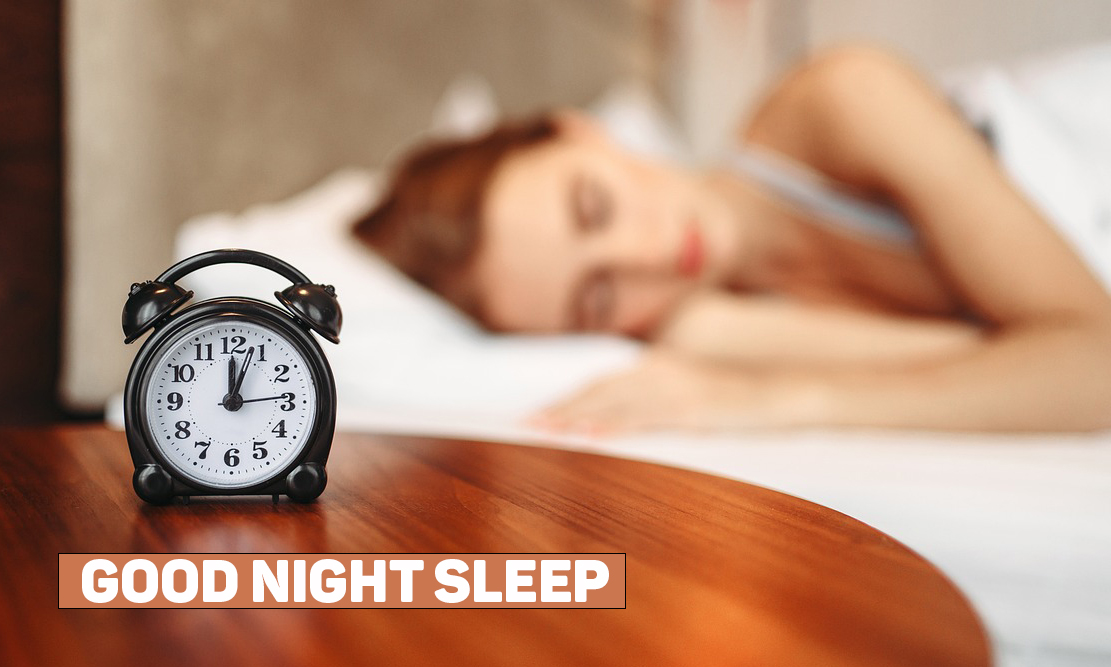Getting enough sleep is critical for maintaining a healthy lifestyle and overall well-being. Sleep is as important to their health as regular exercise and consuming a healthy diet. Lack of sleep may cause physical and mental health issues, accidents, lost productivity, and even an increased chance of death. Lack of sleep may impair job, education, driving, and social functions. Lack of sleep might also make you feel frustrated, angry, or anxious in social settings. In this post, we are looking at sleep for healthy lifestyle topic.
Why Sleep Important
Getting enough sleep at the correct times may assist safeguard your mental and physical health, as well as your quality of life and safety.
Physical Health
Sleep aids in the repair and healing of your heart and blood vessels. Sleep is also beneficial to appropriate growth and development. Deep sleep activates the growth hormone in children and teenagers.
Safety
Poor sleep may cause micro-sleep. Micro-sleep refers to small periods of sleep that occur while you are awake. Micro-sleep is uncontrollable, and you may be unaware of it.
As a consequence, sleep deprivation is not only bad on a personal level, but it may also have a large-scale impact. For example, sleep deprivation has been related to human mistakes associated with terrible incidents such as nuclear reactor meltdowns, big ship groundings, and aircraft mishaps.

Common Sleep Disorders
The four most frequent sleep disorders are as follows:
Insomnia
This is a sleep disorder in which you have trouble going to sleep or staying asleep.
Sleep Apnea
When a person has sleep apnea, their breathing stops for a short time or gets very shallow while they sleep. This is caused by occasional obstruction of the upper airway, generally when the soft tissue at the back of the neck collapses.
Restless legs syndrome (RLS)
Restless legs syndrome causes an uncomfortable tingling or prickling in the legs, especially the calves. This feeling goes away when the legs are moved or massaged. RLS patients need to stretch or move their legs to relieve discomfort. As a consequence, it may be challenging to fall and remain asleep.
Narcolepsy
The main symptom of narcolepsy is severe daytime sleepiness, even after full nightly sleep. Furthermore, repeated awakenings might disrupt evening sleep. Narcolepsy patients often fall asleep at inconvenient times and locations.
How Much Sleep Is Enough?
Sleep needs vary from person to person and depend on how old you are. As stated below:
- Newborns range from 0-3 months: 14–17 hours
- Infants range from 4–12 months: 12–16 hours
- Toddler range from 1–2 years: 11–14 hours
- Preschool range from 3–5 years: 10–13 hours
- School-age range from 6–12 years: 9–12 hours
- Teen range from 13–18 years: 8–10 hours
- Adult range from 18–60 years: 7-plus hours
- Adult range from 61–64 years: 7–9 hours
- Adult range from 65+ years: 7–8 hours
Healthy lifestyle habits for Getting Enough Sleep
- Exercise is beneficial, but not towards the end of the day.
- Avoid coffee and nicotine before bedtime
- Do not sleep after 3 p.m.
- Avoid discussing emotional problems shortly before going to bed.
- Unwind before bed.
- Do not lay awake in bed.
- Consult a doctor if you continue to have difficulty sleeping
While sleep is crucial for our physical and mental health, achieving a good night’s rest can often be a struggle. The repercussions of inadequate sleep can permeate every aspect of our lives. The daily sleep routines we adhere to, referred to as sleep hygiene, can significantly influence the quality of our sleep.
We delve deeper into the art of sleeping well, providing straightforward steps to enhance your sleep routines. From assessing your sleeping quarters to fine-tuning your sleep timetable, our method for improved sleep encompasses particular measures you can implement to simplify the process of falling asleep, remaining asleep, and waking up feeling rejuvenated.
How to improve Sleep quality
- Invest in Superior Mattress and Bedding Securing the right mattress that aligns with your needs and preferences is crucial to ensure you’re comfortable enough to unwind. Investing in a supportive mattress and pillow can provide your spine with the necessary support to prevent discomfort and aches. Your sheets and blankets significantly contribute to making your bed feel welcoming. Opt for bedding that is pleasant to touch and helps maintain a comfortable temperature throughout the night.
- Limit Light Exposure Excessive light can disrupt your sleep and circadian rhythm. Using blackout curtains or a sleep mask can help block light and prevent it from disturbing your rest. Avoiding bright light can aid your transition to bedtime and boost your body’s production of melatonin, a hormone that encourages sleep.
- Reduce Noise: Minimising noise is a crucial aspect of creating a sleep-friendly bedroom. If you can’t eliminate nearby noise sources, consider masking them with a fan or a white noise machine. Earplugs or headphones can also help prevent noises from disturbing your sleep.
- Adjust the Thermostat to 18 to 20 Degrees Celsius Your bedroom temperature shouldn’t distract you by being too hot or too cold. The perfect temperature can vary per individual, but most research suggests sleeping in a cooler room, around 18 to 20 degrees Celsius.
- Aim for At Least Seven Hours of Sleep If you want to ensure you’re getting the recommended sleep each night, you need to allocate that time in your schedule. Considering your fixed wake-up time, calculate a target bedtime that allows for at least seven hours of sleep. Whenever possible, allow yourself extra time before bed to prepare for sleep.
- Maintain a Consistent Wake-Up Time: It’s nearly impossible for your body to adapt to a healthy sleep routine if you’re constantly waking up at different times. Choose a wake-up time and adhere to it, even on weekends or days when you might be tempted to sleep in.
- Limit Naps to Around 20 Minutes: To improve your sleep at night, it’s important to be cautious with naps. If you nap for too long or too late in the day, it can disrupt your sleep schedule and make it harder to fall asleep at night. The optimal time to nap is shortly after lunch in the early afternoon, and the ideal nap length is around 20 minutes.
- Relax Before Bed: Falling asleep is much easier when you’re relaxed. Quiet reading, gentle stretching, listening to calming music, and relaxation exercises are ways to get into the right mindset for sleep. Instead of trying to fall asleep, focus on relaxing. Controlled breathing, mindfulness meditation, progressive muscle relaxation, and guided imagery are examples of relaxation techniques that can help ease you into sleep.
- Disconnect Devices an Hour Before Bed: Tablets, smartphones, and laptops can keep your brain active, making it difficult to truly relax. The light from these electronic devices can also suppress your natural production of melatonin. As much as possible, try to disconnect for an hour or more before going to bed.
- Get 30 Minutes of Natural Light Exposure: Your body’s internal clock is regulated by light exposure. Sunlight has a strong effect, so try to absorb daylight by going outside or letting natural light in through windows or blinds. Getting a dose of natural light early in the day can help regulate your circadian rhythm. If natural light isn’t an option, you can discuss using a light therapy box with your doctor.
- Exercise for At Least 20 Minutes Each Day: Daily exercise has numerous health benefits, and the changes it triggers in energy use and body temperature can promote sound sleep. Most experts advise against intense exercise close to bedtime as it may hinder your body’s ability to wind down before sleep.
- Reduce Caffeine Consumption After 2 p.m.: Beverages like coffee, tea, and fizzy drinks, which are high in caffeine, are globally loved. Some individuals may resort to the energy boost from caffeine to combat daytime fatigue, but this method isn’t viable in the long run and can lead to chronic sleep deprivation. To prevent this, monitor your caffeine consumption and steer clear of it in the latter part of the day when it might hinder your sleep.
- Do not Consume Alcohol Close to Bedtime: Alcohol can make you feel sleepy, leading some to fancy a drink before hitting the sack. Regrettably, alcohol can impact the brain in ways that diminish the quality of sleep, making it advisable to refrain from alcohol in the hours leading up to sleep.
- Have Dinner Several Hours Prior to Sleep: Falling asleep can be challenging if your body is still busy digesting a hefty dinner. To minimise disruptions to sleep due to food, it’s best to avoid late-night meals and particularly fatty or spicy foods. If you feel peckish in the evening, choose a light snack instead.
- Minimise Nicotine Use and Exposure to Smoke: Contact with smoke, including passive smoking, has been linked to a variety of sleep issues such as trouble falling asleep and interrupted sleep. Nicotine is a stimulant, and using it in the evening can particularly disrupt your sleep.
- Dedicate Your Bed to Sleep and Intimacy Only: If your bed is cosy, you might be inclined to use it for leisure activities, but this can create issues when it’s time to sleep. It’s important to associate your bed strongly with sleep, so try to restrict your bed’s use strictly to sleeping and intimacy.
- Leave Your Bed After 20 Minutes of Sleeplessness: You want to prevent associating your bed with the frustration of insomnia. This implies that if you’ve been in bed for about 20 minutes without falling asleep, it’s better to get up and engage in a relaxing activity in dim light. Refrain from looking at the clock or using electronic devices and only return to bed when you start feeling sleepy.
- Maintain a Sleep Journal: Keeping a daily record of your sleep can help you monitor your sleep patterns and pinpoint factors that might be enhancing or impairing your sleep. If you’re trying out a new sleep routine or making changes to your sleep hygiene, your sleep journal can serve as a useful tool to track the effectiveness of these changes.
Conclusion:
Sleep is an important, yet often overlooked component of everyone’s overall health and healthy lifestyle. Sleep is essential because it allows the body to recover and prepare for the next day. Insufficient sleep and rest can aid in excess weight gain, heart disease, and sicknesses.

